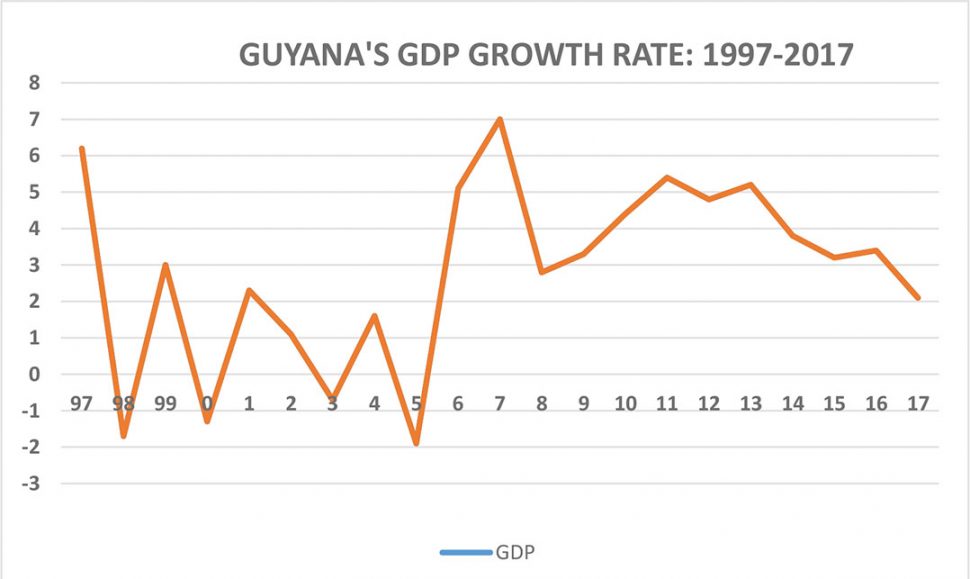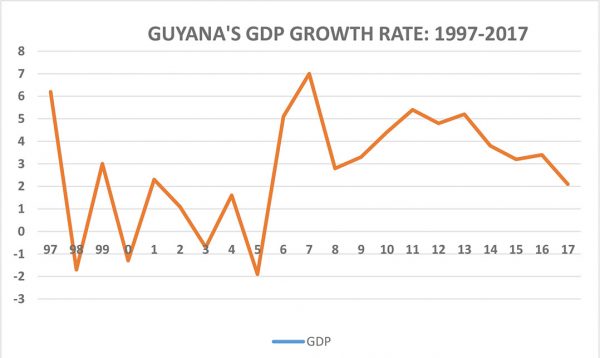
He who trusts any man with supreme power gives it to a wild beast, for such his appetite sometimes makes him: passion influences those in power, even the best of men, but law is reason without desire … Aristotle
Last Thursday, the National Assembly met to discuss, among others, the consequences of the successful passage of the vote of no confidence in the Government. The Government had requested the Speaker to review his ruling that the votes of 33 members of the 65-seat Assembly constituted a majority of members, contending that the figure should be 34 instead. With the benefit of more time to reflect on the matter, the Speaker reaffirmed his earlier ruling.
In our two previous columns, we had urged all parties concerned to respect the Speaker’s ruling and proceed to the next stage of preparing for and having elections not later than 20 March. While it is within the Government’s right to seek judicial review, we strongly advise against this because of the potential for creating further tensions in the Guyanese society. The Government has, however, indicated that it would soon be seeking a judicial review of the Speaker’s ruling. Meanwhile, through a private citizen Compton Reid, the Government has sought the intervention of the court to invalid the vote of one Member of Parliament (MP) who is the holder of foreign passport and who would have sworn allegiance to another country, in violation of the Constitution. The hearing is set for 15 January. One recalls the court action by Cedric Richardson challenging the constitutional amendment restricting the eligibility of a person to serve as President to not more than two terms. The matter went all the way to the Caribbean Court of Justice (CCJ) which ruled that the amendment was valid. We raise this to highlight the fact that the judicial review process does take time for a final determination of the matter, including possible appeal to the Supreme Court, then to the CCJ.
If the court rules in favour of the Government, the votes will be tied at 32:32 and therefore the no confidence motion would have failed. The Government will then continue in office until its term expires latest May next year. In all probability, the Opposition would appeal the decision all the way to the CCJ. As of now, elections are due to be held in less than three months’ time. It is possible for the deadline to be extended with the agreement of the Opposition to allow the Guyana Elections Commission enough time to prepare for a successful runoff of the elections in the event it is not in a state of readiness. Assuming that any such extension will be for not more than three months, this will take us to June of this year. This is six months away from 2020 when, under normal circumstances, elections would have been due. Given these timelines, is it worth the while seeking a judicial review of the Speaker’s ruling?
What, however, appears to be the case from the Government’s perspective is the manner in which its tenure of office was reduced. One of its ranks had chosen to join the Opposition to vote in favour of the motion. But this is a matter internal to the APNU-AFC coalition. It was the same coalition, when in Opposition, that was instrumental in reducing the term of office of the previous Administration to three years through the tabling of a motion of no confidence. The key difference was that before the motion could have been debated and voted on, the then President prorogued Parliament, then dissolved it, paving the way for fresh elections. At a meeting of the Private Sector, the former President referred to the motion and had arrogantly exclaimed: ‘Bring it on’! A leading Government MP displayed the same arrogance and used same words in the Assembly just before the vote of no confidence was taken.
Politicians are supposed to be the humble servants of the people. However, when elected to office some of them assume the role of masters and become arrogant and contemptuous of the very people they are required to serve. The virtual shutdown of an essential part of the city when the National Assembly is in session and the consequent disruption of the flow of traffic are enough evidence of the display of that arrogance and contempt, not to mention the spectacle of Ministers arriving at Parliament Building chauffeur-driven in their gas-guzzling SUVs, some with sirens blazing as they come through the traffic, all at the expense of the State. It is a most despicable spectacle for the Western Hemisphere’s third poorest nation that is struggling to make ends meet for its citizens. (https://naijaquest.com/poorest-countries-in-the-western-hemisphere/). The scene in the National Assembly during the vote of no confidence makes us wonder on what basis some of these persons were chosen to represent the interest of the citizens of this country. They clearly lack the technical and professional competence, indeed the maturity and discipline, to serve in the highest forum of the land, as legislators.
While all of this is going, our economy is in a downward spiral, notwithstanding the enormous natural resources with which our country is endowed. The graph below shows our GDP growth rate for the period 1997 -2017:
This is a crucial time in the history of our country. It requires strong, and morally and ethically upright leadership with a clear vision. It requires our leaders to: display political maturity; engage in meaningful dialogue and compromise; eschew partisan politics, pettiness and bickering; commit themselves to the adherence to the highest principles of good governance, transparency and accountability; and take appropriate measures to protect and preserve national interest. Unless these actions are taken urgently in a meaningful and effective manner, economic and social development and progress will remain a delusion, indeed a mirage and a dream unfulfilled for the vast majority of Guyanese citizens. The proposed meeting with the President and the Opposition Leader on Wednesday offers some hope. We await the outcome.
Constitutional Provisions Relating to Membership of the National Assembly
Article 53 states, among others, that a person shall not eligible to become a Member of Parliament (MP) if he or she is not a citizen of Guyana. By Article 58(1), a person who sits and votes in the Assembly, knowing or having reasonable grounds for knowing that he or she is not entitled to do so, shall be liable to a penalty of G$2,750 for each day he sits or votes.
In accordance with Article 155(1), ‘[n]o person shall be qualified for election as a member of the National Assembly who – (a) is, by virtue of his own act, under any acknowledgement of allegiance, obedience or adherence to a foreign power or state … ’. The Constitution, however, provides no guidance in the case of a Guyanese citizen also holding citizenship of another country. Be that as it may, Article 165(2) provides for the following:
The Assembly may act notwithstanding any vacancy in its membership (including any vacancy not filled when the Assembly first meets after the com mencement of this Constitution or after any dissolution of Parliament) and thepresence or participation of any person not entitled to be present at or to participate in the proceedings of the Assembly shall not invalidate those proceedings.
It is evident that the vote of a person in the Assembly who is deemed an unqualified member, is a valid one. However, it will be for the court to decide, unless the case is withdrawn which is the desirable course of action. As in the case of the Speaker’s rejection of the Government’s argument that the votes of 34 MPs constitute a majority, it would indeed be another embarrassment for the Government should the court rule that the concerned MP’s vote is valid.
These considerations apart, the reality of the situation is that over the last two decades or so, we have overlooked this important requirement of the Constitution. The evidence suggests that persons who were the holders of foreign passports became Members of Parliament and even Ministers of the Government. If a thorough background check of current Members of Parliament and Ministers of the Government is done, it could very well be that the practice continues to this day. Indeed, it would be discriminatory to hold one MP to account in relation to Article 155(1) while at the same time overlooking other MPs who indulge in the same practice.
Another interesting provision of the Constitution is contained in Article 156(3):
A member of the National Assembly elected under a list shall be disqualified from being a member of the Assembly, if he or she, in the prescribed manner, declares that he or she will not support the list from which his or her name was extracted or, declares he or she abstain from supporting that list or, declares his or her support for another list.
The concerned MP has since been removed from the list and replaced by another person.
Election Manifesto
An election manifesto can be viewed as social contract between an elected government and the citizens of the country. It contains detailed plans for the delivery of public services if elected to office and enables the voters to choose which political party along with their candidates they should support. The Election Commission of India had drafted guidelines for the country’s 2014 elections which prohibited political parties from making promises in their election manifestos that would exert undue influence on voters. As Varun Gandhi, National Secretary of the BJP of India, stated:
If democracy is a social contract between those elected and ordinary citizens, then manifestoes should be considered as a legal contract enshrining a counry’s purported development agenda. For the health of India’s democracy, ensuring accountability for manifestoes remains a key reform to be pushed.
For further details can be found at https://www.hindustantimes.com/opinion/political-parties-must-be-held-accountable-for-their-election-manifestoes-writes-varun-gandhi/story-B2r1PBSxNhqjqqeh38tvGL.html.
It is time for our political parties to present their manifestos to the electorate to enable voters to choose which party should manage the affairs of the State on their behalf for the next five years. The two main political parties – the PPP and the PNC – have dominated the Guyana political landscape since the 1950s, drawing their support mainly from the two major ethnic groups. Over the years, other political parties have joined the quest for political office, including the United Force in the 1960s, the Working People’s Alliance and of recent, the Alliance For Change (AFC). They were, however, unable to make any significant impact because ethnic sentiments became the dominant factor, fueled by fears of insecurity, in the lead-up to the polls. The AFC had held the promise of hope but that has since faded into oblivion because of its failure to hold its senior coalition partner to account, as faithfully promised. Indeed, despite all the utterances to the contrary, the AFC has been consumed and subsumed by the latter.
Next week, we will examine the APNU+AFC coalition manifesto in the run-up to the 2015 elections to assess the extent to which it has fulfilled its promise to the electorate.






